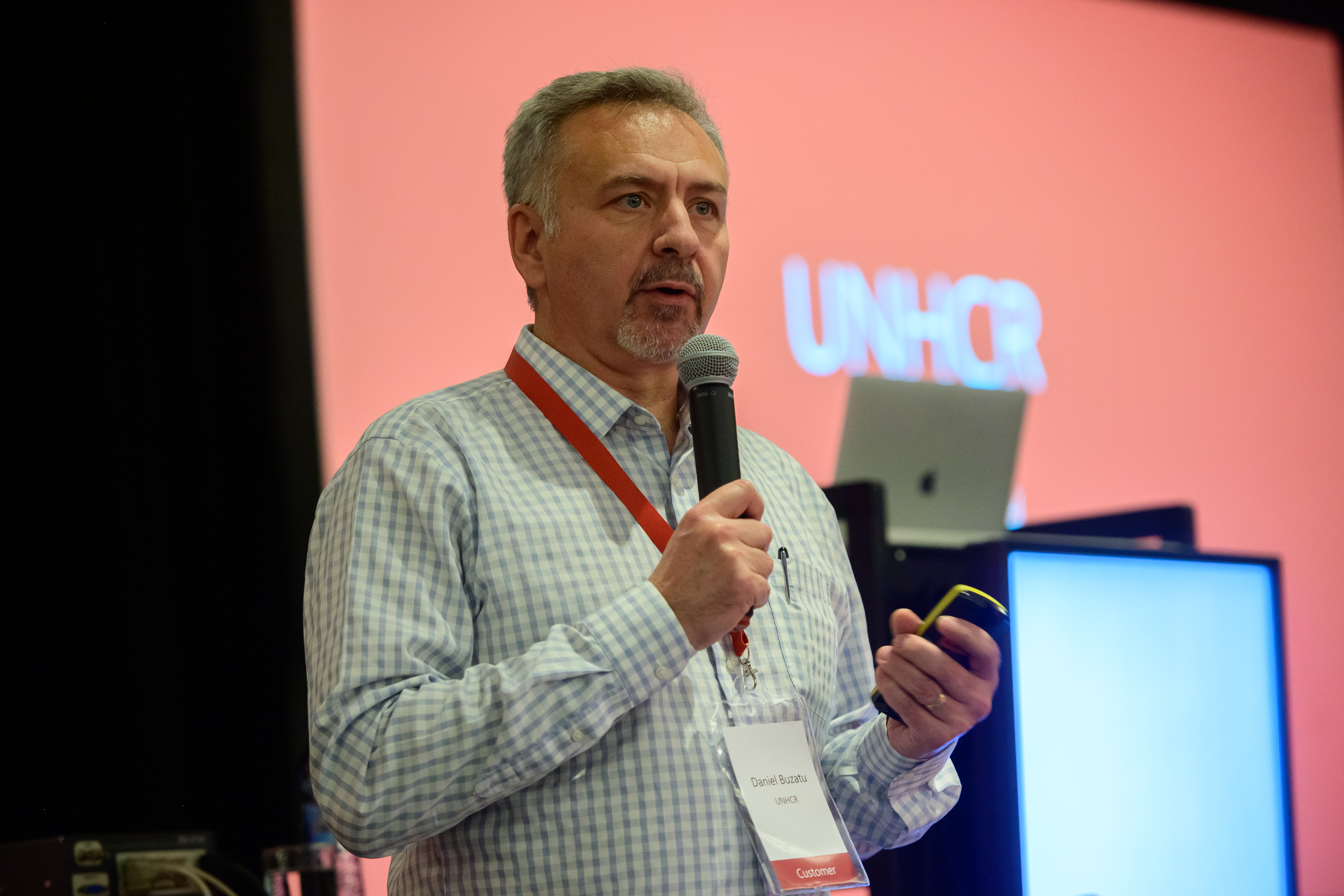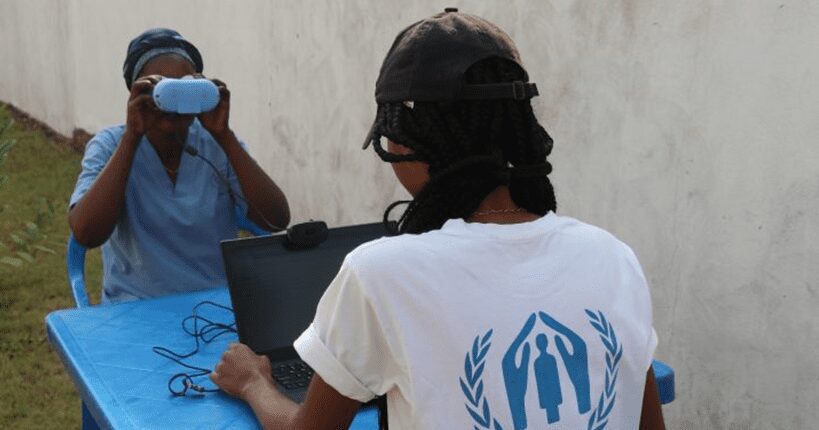With more than one year of collaboration and 15+ countries already under our belt, Resco is teaming up with the UN Refugee Agency (UNHCR) in a brand-new way – by undertaking a joint mission to Cameroon just a few short days from now.
The goal? To assist and observe an actual roll-out of PRIMES, UNHCR’s cutting-edge Population Registration and Identity Management EcoSystem, where the Resco Cloud platform plays a critical role.
It’s an honor to join CTO Miro Pomsar and represent Resco in Cameroon over the coming days. As we pack our bags, I thought it a good time to revisit this partnership that’s bringing Resco technology to the farthest reaches of the globe while also giving you a sneak preview of what we’ll be up to in Cameroon.
Streamlining the refugee registration process
Resco and UNHCR have been working together to vastly improve the refugee registration process as well as the comfort and outcomes for refugees in some of the most remote, disconnected environments on the planet.
After first meeting to investigate the Resco platform at the resco.next 2017 conference, the UNHCR and Resco teams (with the involvement of Resco partner PowerObjects) prototyped the first version of “Rapid App” (RApp) in a matter of months. RApp, a customized version of the Resco Mobile CRM application, provides local UNHCR officers with a completely offline application for refugee registration. The goal is to collect refugees’ personal information using the offline app, and then sync it with the larger, global refugee database once the teams return to areas with stable internet access.
RApp itself is a core component of PRIMES, a suite of UNHCR applications that provides a centralized repository of all relevant identity data of persons of concern, accessible from anywhere by UNHCR staff and partners with appropriate access rights.
Just a few months after the initial prototype, the RApp pilot implemented by Power Objects was deployed in Spring 2018 in the Amazon region of Brazil, with tremendous results. The Resco technology used not only included RApp, but also a local Resco Cloud server that aggregated all refugee registration information and then synchronized the thousands of registrations back to the UNHCR’s global database. This Resco platform approach not only saved time and data costs, but it offered tangible proof that refugees could be registered at a much, much faster rate – helping provide them with more comfort and efficient services in an extremely stressful situation.
Expanding across South America and Africa
The success of the Brazil pilot spread quickly throughout UNHCR, as RApp rapidly expanded to 15+ countries across Africa and South America in just a few short months. To further strengthen the partnership, Resco welcomed UNHCR representatives to resco.next 2018 in Prague for more planning and discussion. Daniel Buzatu, ICT Business Systems Coordinator at UNHCR, enthralled the audience during the event’s keynote by showcasing the work he and his team are doing around the world with PRIMES and Resco.

We ended 2018 with plans to expand RApp’s role to cover more than just refugee registration – including modules for child protection, sexual gender-based violence, resettlement, legal & physical protection, and voluntary repatriation.
Stay tuned for our live travel journal
So what’s in store for Resco and UNHCR in Cameroon? This Sunday, Miro and I will depart Vienna for Paris, followed by a flight Cameroon’s capital Yaounde. Following a short stay in this city of 1.3 million, we’ll travel east to Bertoua, the capital of the Cameroon’s Eastern Region. Further travel will take us to the town of Batouri, the home to several refugee facilities serving refugees from the Central African Republic, where we will assist in the country’s first deployment of PRIMES.
For regular updates from our mission keep an eye on Resco’s Facebook, Twitter and Linkedin channels, starting on Monday, March 4. Our daily travel journal will take you behind the scenes of the entire operation as it happens and you‘ll be able witness the impact of mobile technology in some of the most challenging conditions in the world.
Note: Title image courtesy of ©UNHCR/Omotola Akindipe
